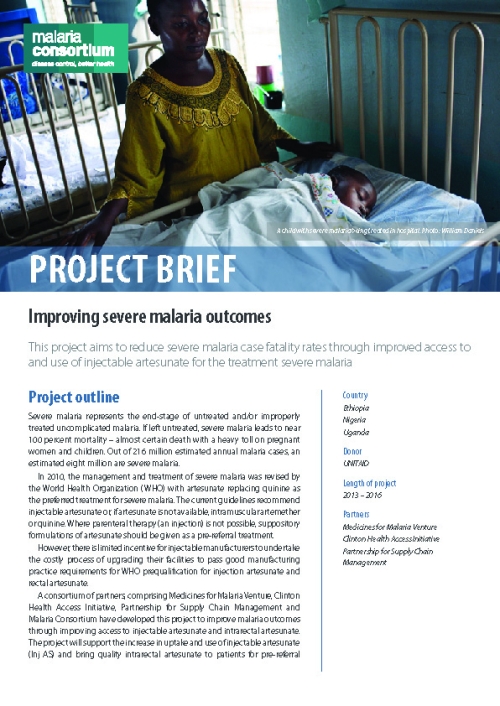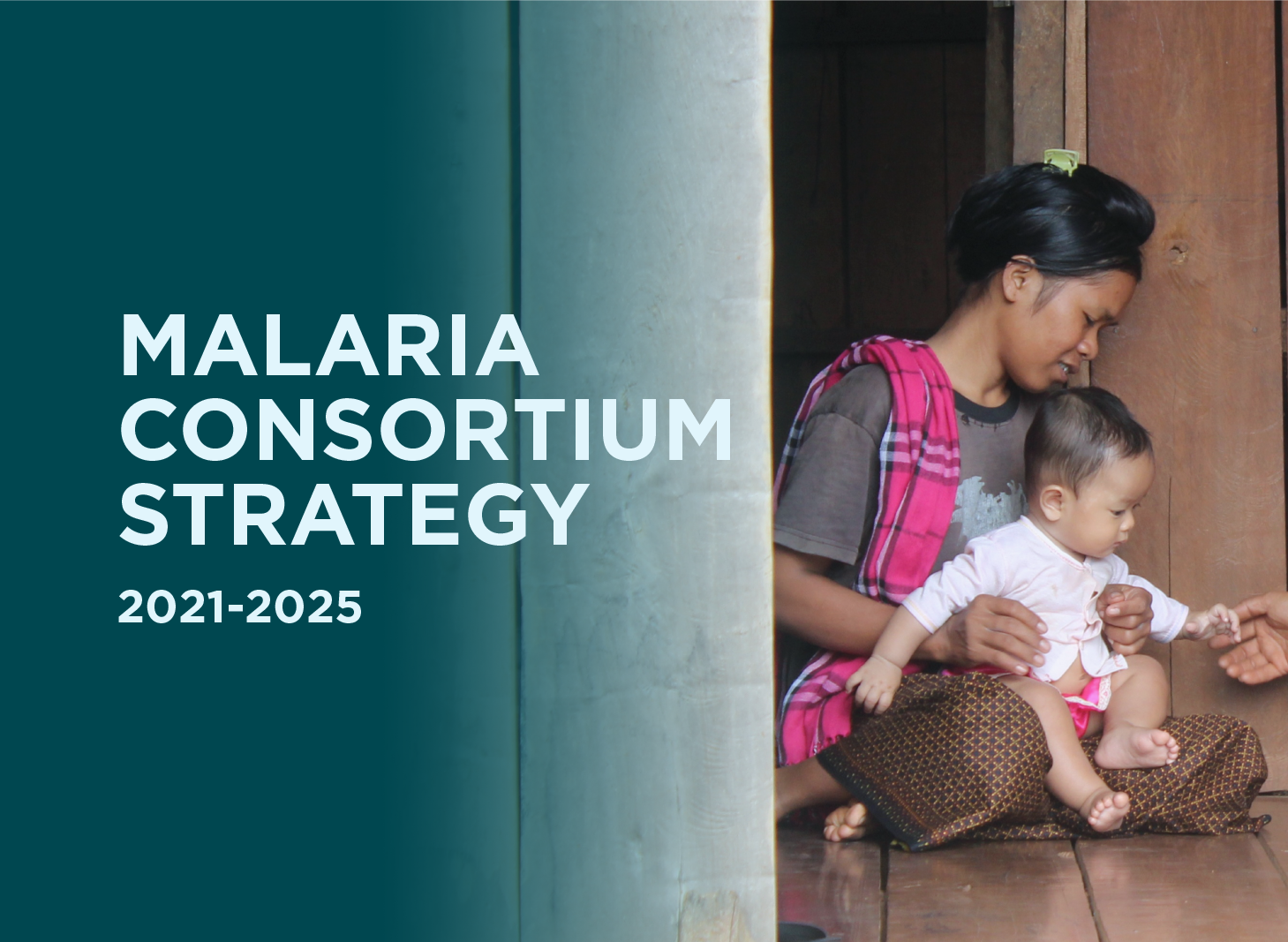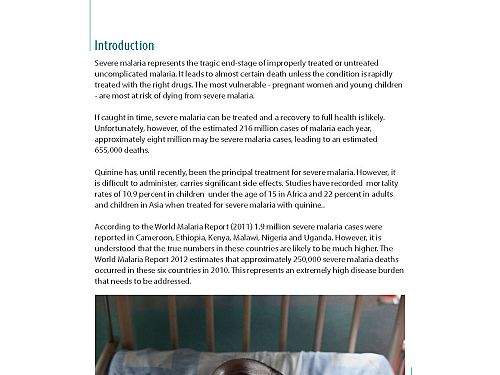Project
Improving severe malaria outcomes
A consortium of partners, comprising Medicines for Malaria Venture, Clinton Health Access Initiative, Partnership for Supply Chain Management and Malaria Consortium have developed this project to improve malaria outcomes through improving access to injectable artesunate and intrarectal artesunate.
The project will support the increase in uptake and use of injectable artesunate (Inj AS) and bring quality intrarectal artesunate to patients for pre-referral treatment of severe malaria. The consortium partners
will undertake a series of coordinated, parallel market interventions addressing key barriers on both the supply and demand side of the market for Inj AS in six countries: Cameroon, Ethiopia, Kenya, Malawi, Nigeria and Uganda.
Malaria Consortium, in collaboration with the beneficiary country programmes, will implement country-level activities in Ethiopia, Nigeria and Uganda and conduct operational research to assess whether using rectal artesunate or injectable artesunate will increase the use of monotherapies and thus increase the risk of developing resistance to artemisinins as malaria treatment.
Back



